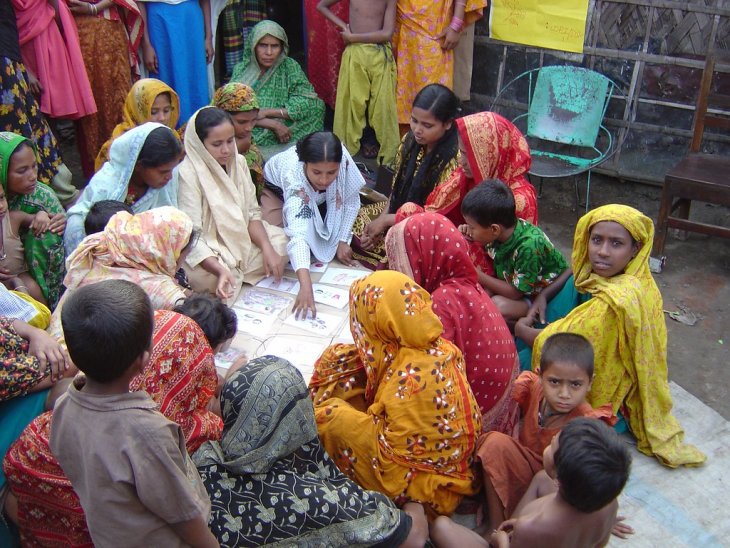In recent years, dozens of countries around the world have been closing civil society space, clamping down on the ability of civil society organizations (CSOs) to operate freely. Alarmingly, this trend is taking place not only in countries with autocratic governments, but also in democratic countries. How are CSOs being impacted, and how are they coping?

Health education in Dhaka. Photo: waterdotorg via Flickr
CSOs provide vital services in many poor countries, advocate upholding human rights, and help hold governments accountable to citizens. But despite these positive contributions, we are currently witnessing an increase in political repression of CSOs in many countries. Political repression, understood as legal and extra-legal measures restricting the operations of locally operating CSOs (both national CSOs as well as international CSOs operating in third countries), has now been established in 60 of the 153 low-and-middle-income-countries (LMICs). These restrictions are found in both authoritarian and formally democratic regimes. Measures include restrictions on the ability of organizations to receive and use foreign funding, taxing funds received, creating administrative burdens for partnerships with foreign CSOs, putting in place restrictive visa policies, prohibiting activities in politically sensitive issue areas, and establishing opaque registration procedures . Initial findings show that these challenges generally negatively affect CSOs, particularly local-level CSOs with financial and/or political ties to foreign governments and international CSOs.
Our informants painted a generally grim picture of impact. The Bangladeshi government has installed regulations monitoring and often preventing foreign funded CSO projects, and requiring NGO registration, leaving room for suspension of registration.
We asked representatives of 28 civil society organizations that have operations in Bangladesh and Zambia to tell us more about how new legal restrictions in these two countries are impacting their organizations. Both Bangladesh and Zambia are classified as democracies, but in recent years their governments have been clamping down on core civil and political liberties, such as the freedom of association.
Our informants painted a generally grim picture of impact. The Bangladeshi government has installed regulations monitoring and often preventing foreign funded CSO projects, and requiring NGO registration, leaving room for suspension of registration. CSOs also suffer from extra-legal measures: digital and physical surveillance, and intimidation by military and/or civil security agents. Bangladeshi government no longer protects Freedom of Association or Expression, instead arresting people for posting statements online or gathering in public.
The Zambian government has created but not fully implemented an NGO act. Most CSOs have rejected registration requirements with government. The Zambian government clamps down on CSOs through threats and persecution via other types of colonial legislation, and courts sometimes have also supported repression (particularly when criticized). In both Bangladesh and Zambia, increasing regime control of the media restricts CSO opportunities for voice in media outlets.
Many national CSOs in Bangladesh and Zambia have disappeared or have gone “off the radar” to the public eye since repression. Various CSOs formerly engaged in advocacy now focus on service delivery, or have shifted from rights-based to needs-based advocacy. CSOs in both Bangladesh and Zambia have become more cautious in targeting government in lobby and campaigns, but have not moved away from engaging in advocacy campaigns aimed at the government.
European service-oriented CSOs operating in the two countries have tried to adjust to regulatory restrictions and keep good relations with government. Advocacy-oriented European CSOs focused on labor, environment and human rights adjust to their local partner’s/offices demands in Bangladesh and Zambia, generally, and continue to support them in forms of advocacy.
Silencing civil society organizations bodes ill for ensuring that human rights are upheld. Policy makers and donors should continue to support CSOs and to advocate for respecting democratic freedoms everywhere.